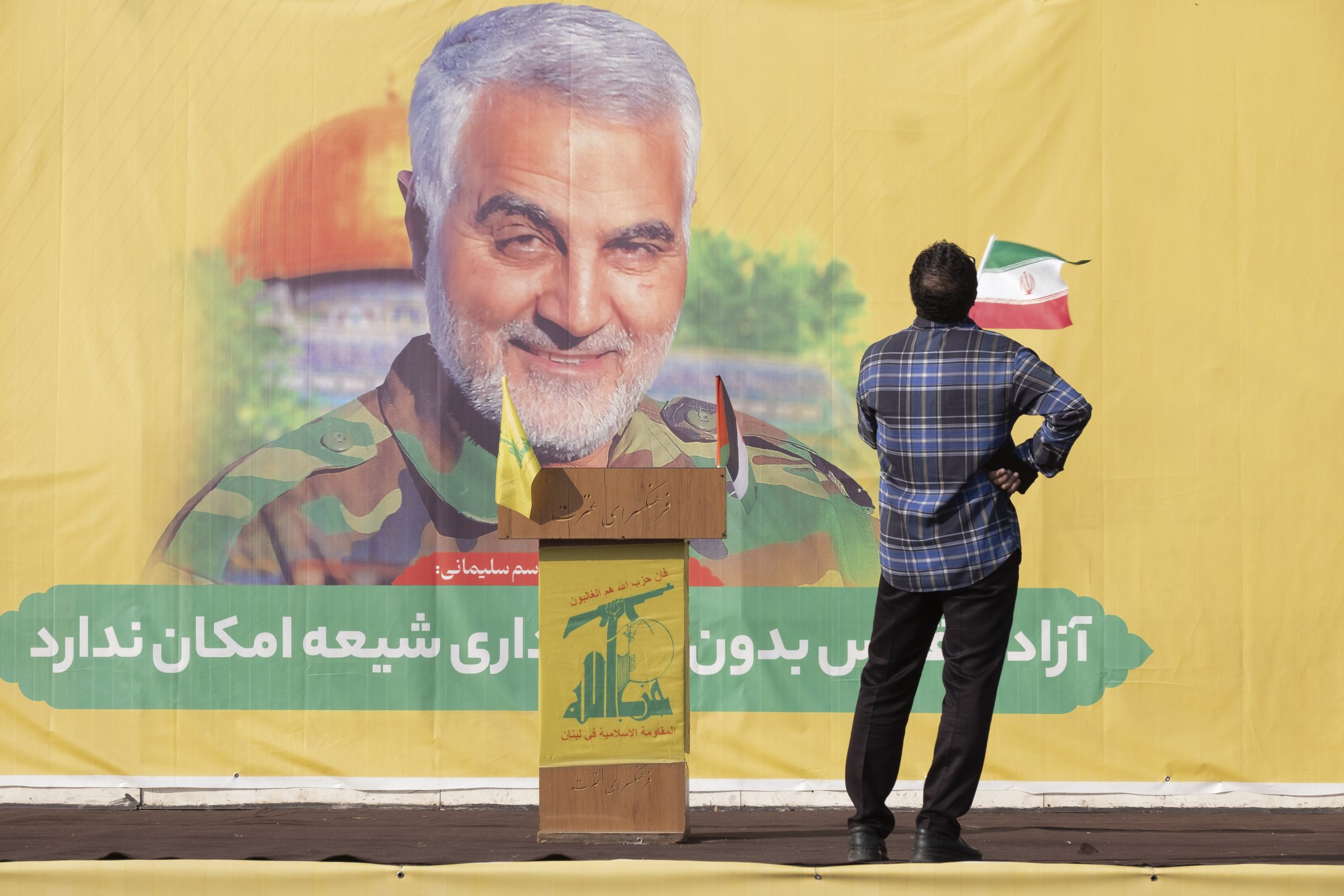



Iran finds itself in a quandary as it tries to manage the spiraling crisis in the Israel-Hamas conflict. Standing on the sidelines in the face of an all-out Israeli invasion of Gaza would significantly set back Iran's strategy for regional ascendancy pursued for over four decades. However, any major attack against a U.S.-backed Israel could exact a heavy toll on Iran and trigger public anger against the clerical rulers in a nation already mired in an economic crisis. Iranian officials are carefully weighing the military, diplomatic, and domestic priorities in Tehran as they navigate this complex situation.
Iran's role in the conflict is tied to its patronage of the Axis of Resistance, a proxy warfare strategy using regional nonstate militant groups. However, the concept of the Axis of Resistance is resented by the Iranian public, and overplaying their hand in the conflict could threaten the domestic political balance of power. The moderates within the regime argue for restraint in the conflict to avoid further sanctions and enhance Iran's reputation worldwide. The average Iranian sees a direct link between Iran's sponsorship of the Axis of Resistance and its pariah standing. Iranian leaders must consider public opinion and the potential consequences of accidental war with Israel and the United States. Despite Ayatollah Ali Khamenei's commitment to fight both Israel and the United States, he is not willing to risk the survival of the Islamic Republic. A protracted regional war involving Iran and the United States could last for years and have significant consequences. [727f6619]
As the Israel-Hamas war continues, Iran's role is being questioned. While Tehran may feel vindicated in its armed campaign against Israel, it is unlikely to seek military escalation. Instead, Iranian officials aim to elevate Tehran's image in the Islamic world and the global south. Iran wants to undercut Israel and the United States diplomatically, calling for Islamic countries to cut ties with Israel. If Iran comes out of the conflict diplomatically stronger, it may have a better chance at resolving its nuclear standoff with the West. [727f6619]
The Gaza war poses a major threat to Iran's Resistance Axis, a regional bloc that includes Iran, Hezbollah, and other groups. Iran's concept of security is shaped by the desire to ensure the survival of the regime against threats from home and abroad. The Resistance Axis serves as a tool for Iran to deter enemies and expand its influence. Iran's strategy includes the concept of forward defense, which involves dealing with threats as far away from its borders as possible. The Gaza war tests the ability of the Resistance Axis to deter Israel. Iran appears hesitant to open a full-scale front between Hezbollah and Israel, as it could lead to heavy casualties and potential US intervention. The conflict in Gaza has strategic implications for the Middle East, impacting the power dynamic between Israel and Hamas, as well as the balance of power in the region. After the war, Iran may need to reevaluate its proxy network and nuclear strategy. The future actions of Hezbollah, a key component of the Resistance Axis, are uncertain. The article also discusses Iran's security considerations and historical experiences that shape its concept of security. [7f4f0d73]
Hamid Mutasher, an Iranian dissident and peace activist from the Ahwazi Arab minority, calls for the dismantling of Iran into smaller nation states. Mutasher describes the illegal occupation of Ahwaz by the Persian regime and the oppressive practices towards the Arab minority. He highlights the demographic changes and forced displacement carried out by the Iranian regime, as well as the exploitation of Ahwaz's natural resources. Mutasher argues that the solution to defeating the Islamic Republic lies in forming a counter NATO-like alliance of non-Persian peoples within Iran and dismantling Iran into six democratic nation states. He emphasizes the need for comprehensive peace between the Arabs and Jews, and sees Israel as a strategic ally in the region. Mutasher calls on regional and international actors to support the liberation of Ahwaz from Iranian occupation. [d1f8c694]
Western self-hatred has become a significant factor in the Israel-Hamas conflict. Western radical left thinkers, influenced by ideas like those of Michel Foucault, have a long history of infatuation with Islamist terrorism. They view terrorism as a rebellion against capitalism and hope for authentic existence through violence. This genre of thinking rejects the West and condemns it as inherently violent, oppressive, imperialist, patriarchal, or evil. Israel has become the lightning rod for this vitriol as it represents the West in the midst of the East. The criticism of Israel goes beyond justified objection to military occupation and includes calls for the complete destruction of the state. Israel's Jewishness makes it a symbol of the West's entire history and the most atrocious white supremacists. The wish to eradicate Israel is seen as a therapeutic and salvific act to atone for the West's past transgressions. Western self-hatred has become fashionable and is a rejection of modernity itself.
The West's reaction to the wars imposed on Israel is sometimes bewildering. They seem to not understand that Israel is doing its best under extremely difficult circumstances. US Secretary of State Antony Blinken's reaction to Hamas' latest response in the ongoing negotiations shows a lack of understanding of the evil nature of Hamas. The West, in general, fails to recognize the evil intentions of Hamas and often talks of rewarding the Palestinians with a state without waiting for the release of hostages. The West's inability to see the world as it is creates absurd situations, such as LGBT activists demonizing Israel while excusing terrorists who torture gay people. The US administration's belief that Hamas can be negotiated with is misguided and encourages more terrorism. Instead, the US administration should support Israel in destroying Hamas as quickly as possible. [1672221b]